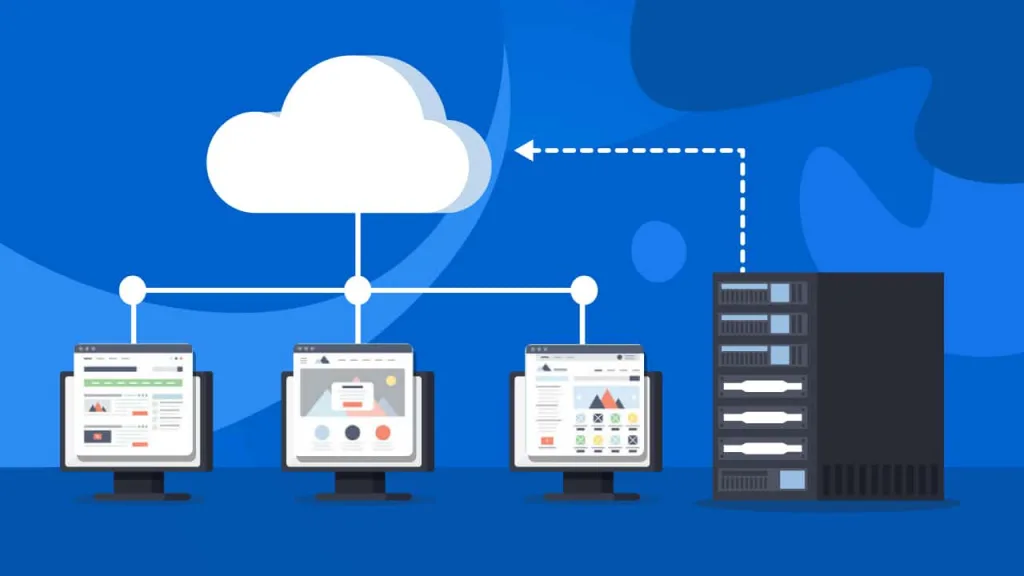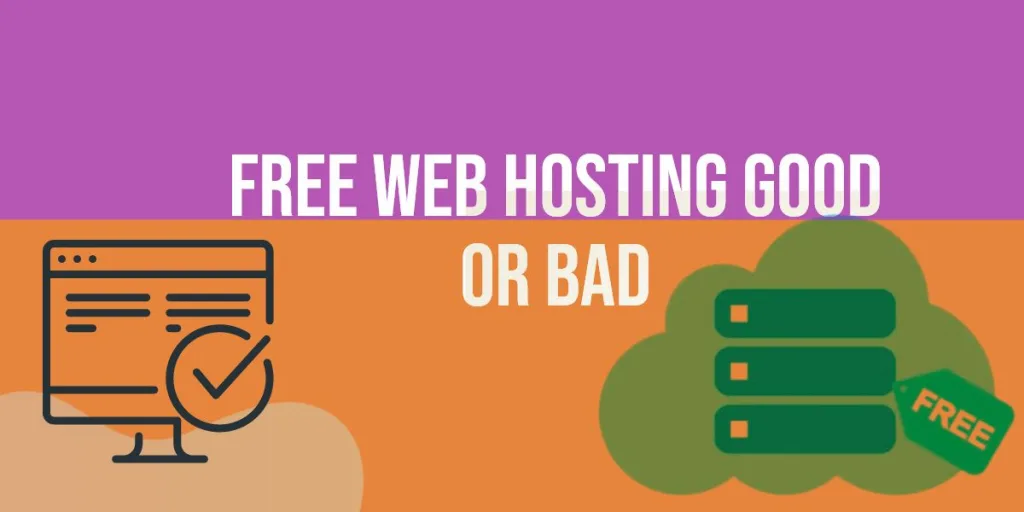What Is Web Hosting:
Imagine you need to move. You can’t afford purchasing a home, so your options are to rent an apartment, a townhouse or a house.
1 . Renting an apartment would save you lots of money, but force you to have to share a floor with other people and deal with pesky neighbors.
2 . Renting a townhouse would cost more money, but allow you a private space, though you would have to share land with potentially annoying neighbors.
3 . Renting an entire home would cost the most, but provide you lots of space with your own private backyard, porch and driveway.
Congratulations. You’ve just figured out 50% of what all web hosting is about. Just switch out some terms to finish your training.
In the hosting world, you would sign up for shared web hosting instead of renting an apartment.
In hosting, you sign up for virtual private server (VPS) web hosting instead of renting a townhouse.
hosting world, you would sign up for dedicated web hosting instead of renting an entire home.
Formal Introduction about Web Hosting
Web hosting is essentially the process of renting space on the Internet, so that you can set up a website. The “landlord” in the world of hosting is known as a web hosting provider. You know how someone like Donald Trump might spent millions of dollars to set up an apartment complex or commercial motel suite? Likewise, a web hosting provider spends an egregious sum of money to construct huge data centers that contain hundreds of computers known as servers.
What Are Servers?
Servers are regular PCs, just like you have at home. The difference is, that servers are not designed for home use. They contain extremely expensive and high-quality components, allowing them to process boatloads of data at extremely fast speeds. In addition, because of their ridiculously high overhead, they require a tremendous deal of maintenance. Which is why they must be stored at data centers managed by professional engineers.
How Do I Get My Own Server?
Money. You need lots of money. Technically, you could just “pimp out” your home computer and turn it into a server, but that’s risky business. If your home suffers a power outage, for instance, your server and the website or websites on it will go down until you get your power back. The other option is to set up a server and then rent space at a data center. The problem is that this would cost you a minimum $1,000 a month. If not more, which is why you need a hosting provider.
Web Hosting Providers

Web hosting providers litter the net like the butts of cigarettes litter the highways. There are literally 1,000s from which to choose. Ranging from corporate giants that cater to everybody. Such as Go Daddy and Host Gator, to small-business operations that target a specific niche. Choosing from this cacophony of noise can be very intimidating. Especially if you are new to web hosting and don’t know what attributes to look out for in a potential provider.
What Should I Look For In a Provider?
Every hosting provider offers unique hosting services and plans, depending on the provider’s particular setup. For instance, HostGator serves shared, VPS and dedicated clients, while WebHostPad only caters to those seeking shared hosting. That said, a large part of finding a suitable web hosting provider lies in your capability to determine your exact needs. Do you need a cheap provider for a personal blog, or are you looking to create a humongous website like Amazon?
How Do I Avoid Getting Scammed?
Before you ever sign up for a web hosting plan with a hosting provider, conduct some serious research. Call the provider’s support line and ask tough questions. Read every user review you can get your hands on. Compare its rates, plans and reviews with other providers. And make certain you check whether the provider has a record with the Better Business Bureau. Never, under any circumstances, associate with a provider that isn’t registered with the BBB.
Web Hosting Plans

As mentioned earlier, three primary types of hosting plans exist, including shared, VPS, and dedicated. They all share some traits but differ in their basic functionality. Shared hosting is geared for newcomers, while VPS is designed primarily for business professionals on a budget. Meanwhile, dedicated hosting was built mainly for rich high-rollers seeking to establish a huge commercial site equivalent to Amazon or BestBuy.com.
Shared Web Hosting
With shared hosting, your website share a single server with dozens or hundreds of other websites. The key benefit of this arrangement is that all clients share and distribute the expenses of the server. Meaning you get to pay a cheap rate. The drawback, however, is that you must share the server’s processor, memory, hard drive and network connection. This increases the likelihood of server congestion, or those moments when usage rates are so high everything slows down to a snail’s pace.
VPS Web Hosting
With VPS hosting, you are still on a shared server. The difference is that a certain portion of the processor, memory, storage space and bandwidth are allocated to a private virtual block that you control. If you sign up for a 1.2 GHz plan and the provider assigns you to a server with four 3.2 GHz processors, your website will have 1.2 GHz of the total processing power exclusively directed to it, ensuring that nobody else can access it. It’s yours to use as you so please.
Dedicated Web Hosting
With dedicated hosting, there is no sharing of any kind. An entire server is set up for just you. You get your own processor, your own memory chips, your own hard drives and your own network connections. This means you have the power at your hands to host an extraordinarily huge site that garners millions of hits per day, if not per hour. The drawback is that dedicated hosting is extremely expensive, with prices ranging between $50 to $500 per month.
Additional Factors to check

Before you sign up for web hosting, there are a few additional terms with which you need to familiarize yourself. These include the Control Panel, Softaculous, WordPress and MySQL. While not every single web hosting provider offers these services and tools, some do provide them. They’re fairly commonplace in the current hosting market. Thus, it would serve you well to learn what these tools are. How they can benefit you and what you need to use them.
Control Panel
The control panel is an administrative interface that allows you to easily manage your site by just clicking buttons. You can access the control panel, available in several forms like cPanel and Plesk, through a web browser. It enables you to set up your site, configure FTP/email accounts, manipulate the database/databases, and add custom programming scripts. It basically lets you manage everything without having to deal with any of the related complexities.
Softaculous
Softaculous is a control panel tool that automates the process of installing third-party applications, such as WordPress, Drupal, Joomla, Magento, Prestashop, to name a few. Instead of having to manually upload and configure complicated programming scripts, you just select what you want from a list and then click the “Install” button. It’s that simple.
WordPress
WordPress is an extremely popular and easy-to-use web content management system, or WCMS, that allows even the most inexperienced Web developers to quickly piece together a professional-looking site within just a matter of days. Compare this to the alternative of spending weeks upon weeks manufacturing large chunks of confusing code in HTML, PHP, or ASP.NET, which then requires repeated retesting to ensure everything works as intended.
MySQL databases
Perhaps the most important aspect of web development is the MySQL database. It is within it that all the core details concerning your site — page titles, page content, page URLs, image names and more — are stored. If you ever need to move your site to another hosting provider, you would without a doubt have to move the database as well. Keep in mind that providers primarily use MySQL as the database, but you may also encounter Oracle.
Conclusion
Web hosting is the process of renting space on the Internet, and it’s a mandatory for anyone who wants a website but can’t afford to spend thousands of dollars to set up a server and store it at a data center. There are 1,000s of providers to choose from, but it’s important to select a provider that fits your particular needs. Last but not least, there are three types of hosting services: shared, VPS and dedicated.



